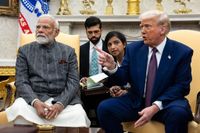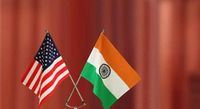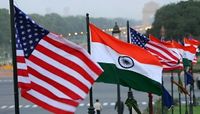India is ramping up its efforts to secure a trade deal with the United States, expressing a sense of urgency not previously seen. A minister from Prime Minister Narendra Modi's government stated that India's trade teams are "really charged up" and eager to finalize a bilateral agreement. This push comes as India seeks to navigate the complexities of Washington's fluctuating tariff strategies.
The backdrop to this intensified push lies in the geopolitical landscape where trade relations between major economies have been in a state of flux. The U.S. has historically altered its tariff policies, creating uncertainty for countries like India that rely on stable trading relationships to bolster their economies.
As India aims to shield its economy from the impacts of these tariff changes, the Modi administration is keen to establish a more predictable and beneficial trade environment with the U.S. This urgency reflects a broader strategy to enhance India's economic resilience amid global trade tensions.
Trade ministers and teams are reportedly mobilized and focused on accelerating discussions with their U.S. counterparts. The Indian government recognizes that a strong trade partnership with the U.S. could serve as a significant counterbalance to the economic challenges posed by other global players.
In recent years, India has positioned itself as a key player in the global market, seeking to attract foreign investment and expand its trade networks. A robust trade agreement with the U.S. could not only enhance economic growth but also solidify India's standing as a crucial ally in the Indo-Pacific region.
The urgency expressed by Indian officials underscores the importance of timely negotiations. With the global economy still recovering from the impacts of the COVID-19 pandemic, countries are looking for ways to stimulate growth and enhance trade relations.
Furthermore, there are indications that the U.S. is also keen to strengthen its ties with India. The Biden administration has emphasized the importance of partnerships with democratic nations, viewing India as a vital ally in countering the influence of China in the region.
As discussions progress, both countries are likely to address a range of issues, including tariffs, market access, and regulatory standards. The hope is that a comprehensive trade agreement will pave the way for increased exports and imports, benefiting businesses and consumers in both nations.
In conclusion, India's proactive approach towards securing a trade deal with the U.S. reflects its strategic vision for economic growth and stability. As negotiations unfold, the world will be watching closely to see how this partnership develops and what it means for the future of global trade.






